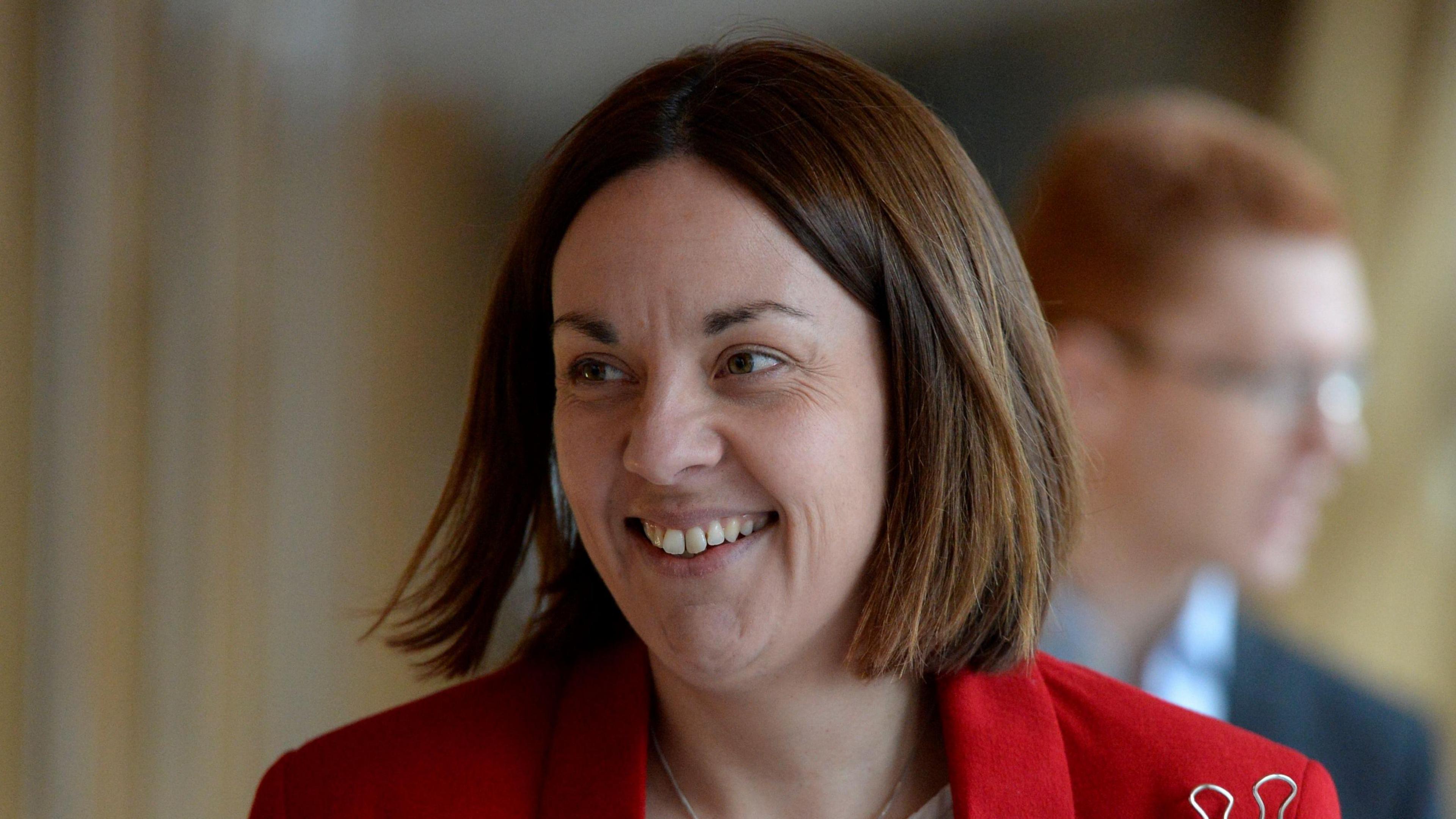Progress in LGBT rights 'fragile' - Kezia Dugdale

Kezia Dugdale led the Scottish Labour party from 2015 to 2017
- Published
A former Scottish Labour leader has warned the country's progress in LGBT rights is "fragile" and revealed she still checks her surroundings before holding her wife's hand.
Kezia Dugdale married SNP Education Secretary Jenny Gilruth in 2022.
Writing in the Scottish Sun On Sunday, the ex-MSP said the couple were one of more than 10,000 who had taken advantage of the Scottish parliament's 2014 decision to allow same-sex couple to marry.
Ms Dugdale said Scotland had made "incredible" progress since then.
Ten years and 10,000 weddings: How same-sex marriage changed Scotland
- Published16 December 2024
But she added: "Progress is fragile. Ask yourself if you've ever paused to check your surroundings before holding your partner's hand on a night out.
"I still do - every single time."
Ms Dugdale, who is now associate director at the University of Glasgow's Centre for Public Policy, said the change 10 years ago to allow same-sex couples to tie the knot had "delivered equality".
It also showed gay people "are not something different, something other, something less".
She insisted 10 years of equal marriage was "a real milestone in our country's recent history because it shows us how much progress we've made".
Ms Dugdale added: "Gay people like me felt safer and more emboldened to live our lives openly."
While she voted for the Marriage and Civil Partnership (Scotland) Act, external at Holyrood a decade ago, Ms Dugdale said to her "shame" she was not "out" at the time.
She added: "I was one of the 129 MSPs who voted on the legislation back in 2014 and I did so from the depths of my closet.
"To my shame now, I wasn't out because I didn't think I could be.
"I thought there would be a professional price paid for talking about who I loved and who I wanted to be with."
The act was approved with 105 MSPs voting in favour and 18 opposed, with no abstentions.
Of those who voted against the bill, seven were members of the SNP, eight were Conservatives and three were Labour MSPs.
Ms Dugdale said she decided to keep her sexuality private after "growing up with the Aids crisis on the TV and the vilification of gay people that came with it".
But, in contrast now, she said "gay characters in soap operas are 10 a penny" and "schools have LGBT clubs where kids are encouraged and supported to be who they are".
Ms Dugdale said: "It's light years of progress, but it doesn't happen by accident, it happens by the passage of acts of law like the Equal Marriage Act."
10,000 weddings
The Marriage and Civil Partnership (Scotland) Act 2014 came into effect on 16 December 2014 and brought Scotland in line with England and Wales, where couples had been able to marry since March.
Between then and the end of September this year, 10,138 same-sex couples have gone on to marry.
Analysis of the National Records of Scotland's figures up to the end of September this year shows that same-sex marriages have taken place in all 32 of Scotland's local authorities.
The council area with the highest number was Edinburgh with 1,853.
Glasgow came second with 1,402 while Dumfries and Galloway came third with 1,379, thanks to the appeal of Gretna as a marriage destination.
The months of July, August and September are the most popular for a wedding.